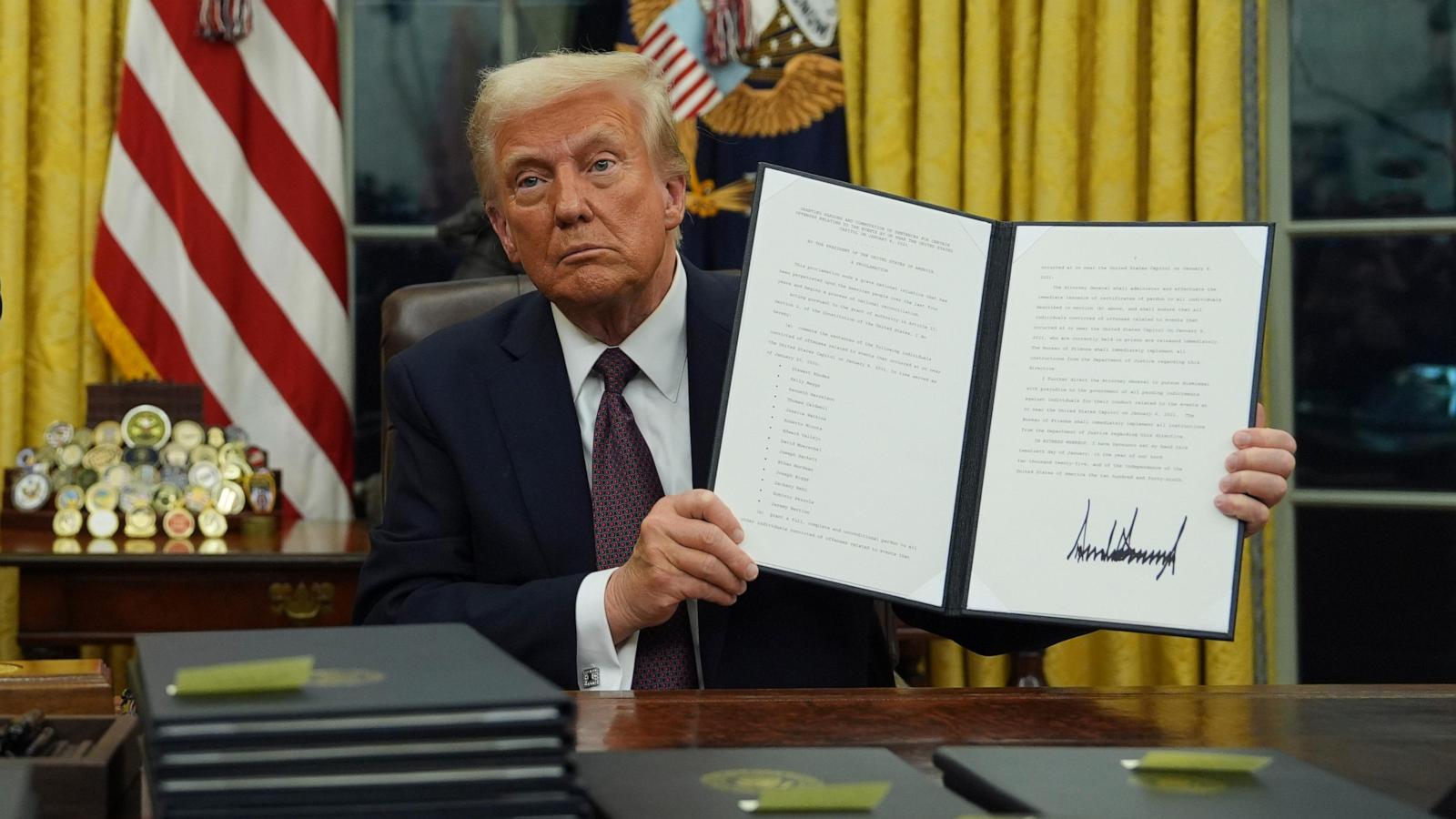President Trump's Executive Order: A Shock to the Electric Vehicle Market?
Buckle up, because the automotive industry is about to experience a seismic shift! President Trump's recent executive order has sent ripples through the electric vehicle (EV) sector, threatening to upend years of progress towards a greener future. With bold pronouncements and sweeping changes, this move has left many wondering: what does this mean for the future of EVs in America?
The Executive Order: A Deep Dive
Trump's executive order isn't just about rolling back Biden-era initiatives; it's a full-fledged assault on the EV market. The order's language is remarkably assertive, setting out to dismantle the incentives that have propelled EV adoption in recent years. Key targets include the $7,500 tax credit, state emissions waivers (which heavily impact California's groundbreaking regulations), and funding for EV charging stations, which was set to transform American roads into networks of charging accessibility. These moves threaten not only the progress already made, but also significantly hinder the future outlook for environmentally friendly automotive transport.
Impact on the American Dream of Electric Mobility
The implications are significant for both consumers and automakers. Tax credits made EVs more affordable, stimulating demand and motivating manufacturers to invest heavily in their development. Ending the credit would deal a significant blow to EV sales, particularly in the lower-end market segment. Additionally, a roll back on state-level emissions regulations could significantly curb California's ability to continue its ambitious EV adoption trajectory.
Uncertainty for Automakers and EV Future
Major automakers who have invested billions into the shift towards electric vehicles face a new level of uncertainty. Suddenly, the rules of the game have changed, possibly disrupting production plans, development cycles and forcing some companies to reassess previously-committed investment.
Ripple Effect across Supply Chains
Beyond the major players, the knock-on effect could severely impact component suppliers who've focused their work on the EV sector. Companies involved in producing batteries, electric motors, charging technology could find their business models disrupted, forcing them to adapt to market forces. Many are likely already reviewing business contingency plans and risk-assessment frameworks.
Beyond the Economic Impact: The Environmental Implications
The executive order's effect extends far beyond the financial and economic realities; the impact on the environment is arguably even greater. It is very widely acknowledged and documented that EV's significantly decrease transport emissions compared to gas powered vehicles. By disincentivizing the use of EVs, this could stall, or even reverse, decades of effort in the pursuit of reducing the impact of vehicle emission on the global climate emergency.
The race against climate change continues
With this new climate set forth by President Trump's new decree, America faces a difficult race against climate change, as curbing emissions from the transport sector is a key element of any sensible carbon reduction strategy. America's commitments under international agreements are heavily impacted, potentially reversing or delaying any efforts to meet agreed targets.
Take Away Points
President Trump's executive order is nothing short of a significant development that will cause tremors through the automotive industry. Beyond the short-term market reactions, there are potentially vast implications that might take years, even decades to fully understand, assess, and mitigate. One thing is certain: the American landscape for electric vehicles will soon change irrevocably.




